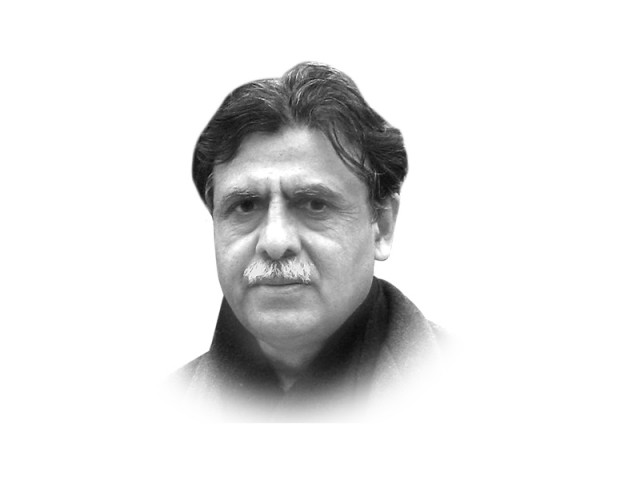Where is Pakistan’s Kejriwal?
How can person in authority ask expats to bring back their wealth to their country while his own wealth lies outside?

The writer is an author, a public policy analyst and a former federal secretary. He teaches at the Lahore University of Management Sciences
Kejriwal empathised with slum-dwellers and shared dreams with those who were living along railway tracks. He dug heels within the urban middle class, and above all, led by example, leading a Spartan lifestyle. He struck hard at the politics of dynastic and communal cults. He has indeed been a path-finder in his country with the ripples of his efforts being felt elsewhere too. What we recently saw in Sri Lanka was no less a surprise. Mahinda Rajapaksa, the war hero, crowned with the feat of preserving the unity of his country, was shown the door when his political baggage got too heavy for the electorate. There was no forgiveness for his cronyism and 'all in the family' style of politics. Pakistan is also no stranger to the cravings that people have for a better future. The people are waiting for those who could lead them by setting personal examples in their public and private lives. With a proactive media, governance and delivery by the political leadership is coming under serious scrutiny and indictment in case of visible lapses and shortfalls.
Politics in Pakistan has become vibrant and engaging. A growing urban middle class and a very active youth are being drawn into the process. This started with the MQM representing liberal values and a progressive world view. Imran Khan, despite his skillful articulation about the need for change, has not been able to share
a convincing view of regional imperatives when it came to the war on terror. His, heart, however, changed after the APS tragedy. It remains to be seen how well his message can permeate in a complex and multilayered society.
Our political values have suffered a steady decline. Politicians of yore, who had to part with their hard-earned resources at the time of elections, would be poorer by a few notches during their time in active politics. This trend, however, changed drastically after the 1985 non-party elections. Each election thereafter opened up economic and business prospects for new incumbents with easy access to credit lines. Sugar mills, for instance, were set up by aspirants on notional equity with nationalised banks being more than willing to help politicians out in these matters. In contrast, most of the big names from our earlier leadership, from Liaquat Ali Khan to Huseyn Shaheed Suhrawardy, died in genteel poverty. Iskander Mirza, who died in exile, did not have any Swiss accounts.
This is not the case now. On my recent visit to the Emirates, a young Pakistani investment banker drove me through some business districts and posh residential areas, pointing out properties worth millions owned by leading Pakistani politicians and their families. I have no issue with our politicians owning such palatial residences or even with the source of these acquisitions. The only issue is that when these top figures are in the service of the people, they need to lead us through personal examples. How can a person in authority ask expats to bring back their wealth to their country while his own wealth lies outside Pakistan?
While looking at our political landscape, Balochistan and Khyber-Pakhtunkhwa have represented alternative modes of incumbency for the last few elections. Sindh and Punjab, however, represent the politics of deep entrenchment with the PPP and the PML-N sharing the dividends. There is no harm in this if entrenched politics is buttressed with good governing practices. But the incumbents have not fared well on this score. People can live with fiscal deficits and energy shortfalls. But they have serious questions when it comes to the manner these deficits and shortages are managed. Our leaders need to grow beyond the oft-repeated harping over 'national interest' to elicit public support. What the public expects from them is to desist from fostering situations that throw up conflicts of interest while exercising policy choices.
Published in The Express Tribune, February 24th, 2015.
Like Opinion & Editorial on Facebook, follow @ETOpEd on Twitter to receive all updates on all our daily pieces.















COMMENTS
Comments are moderated and generally will be posted if they are on-topic and not abusive.
For more information, please see our Comments FAQ